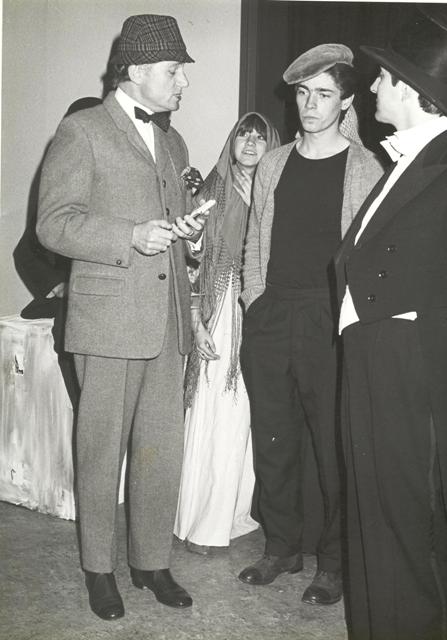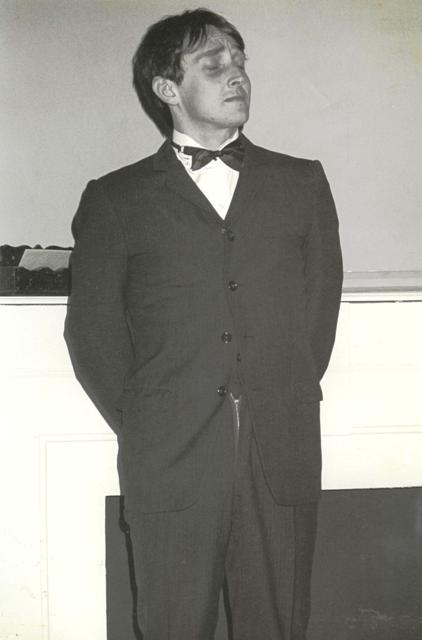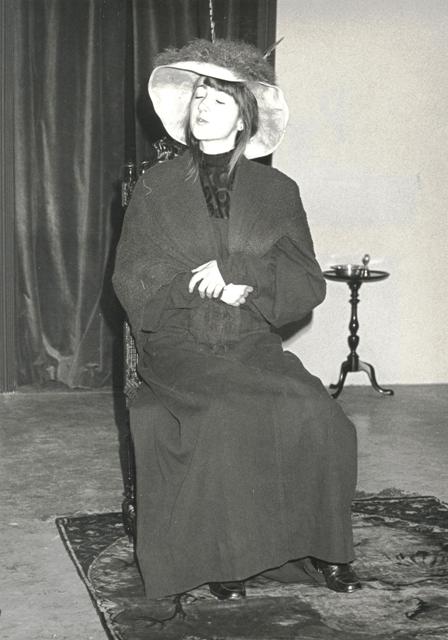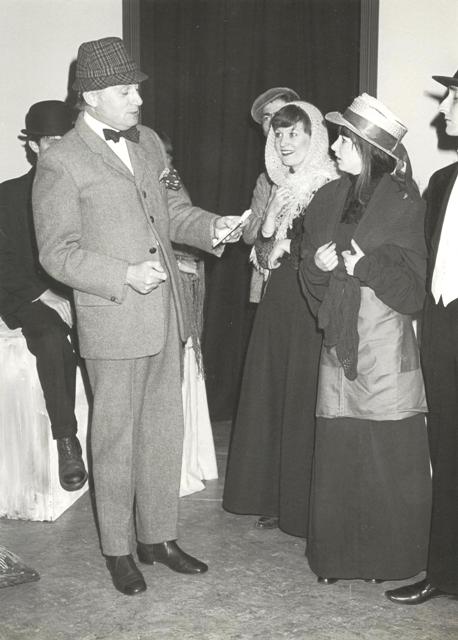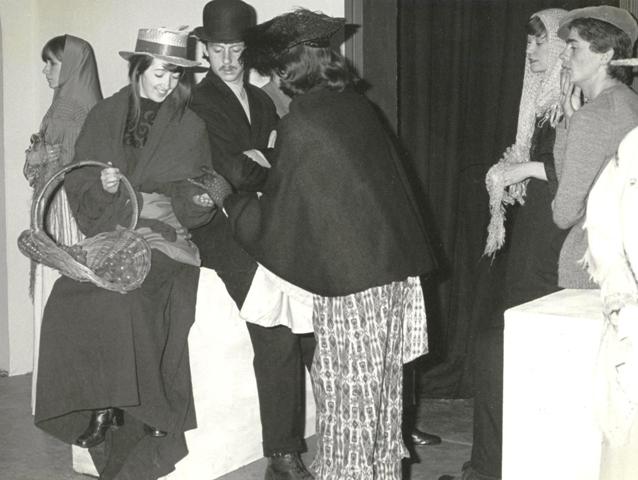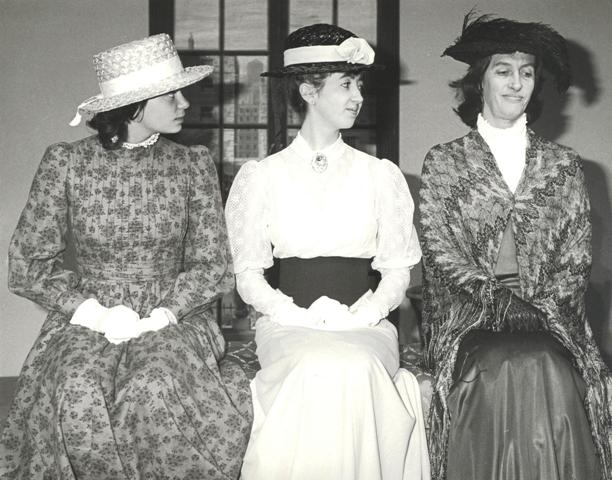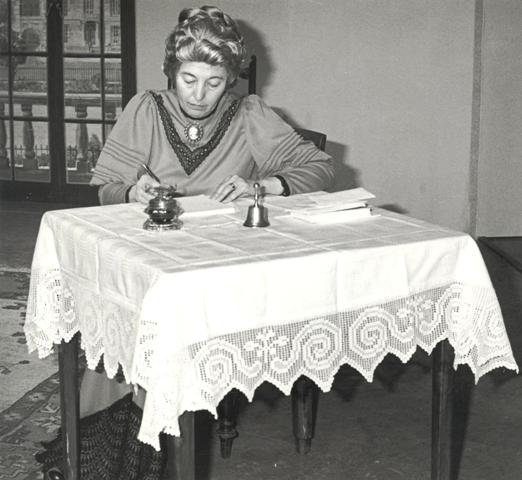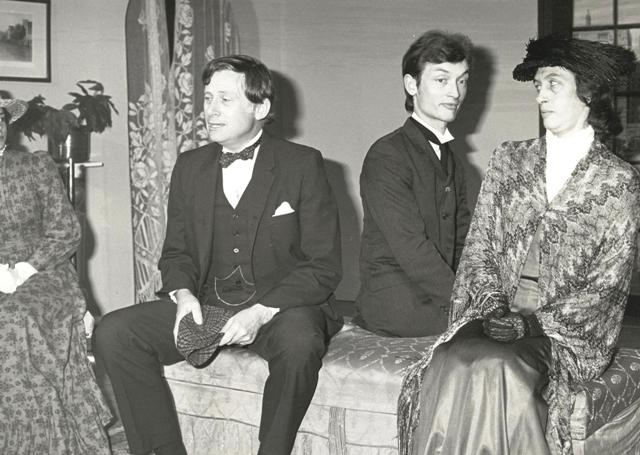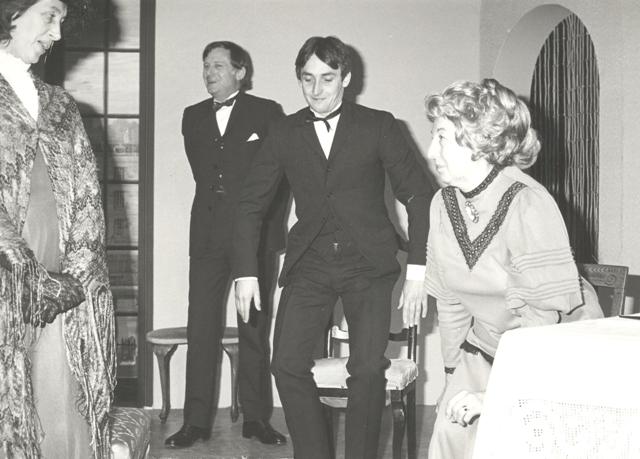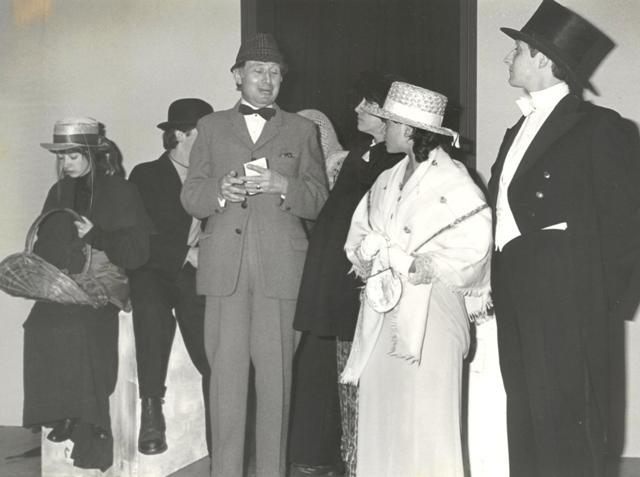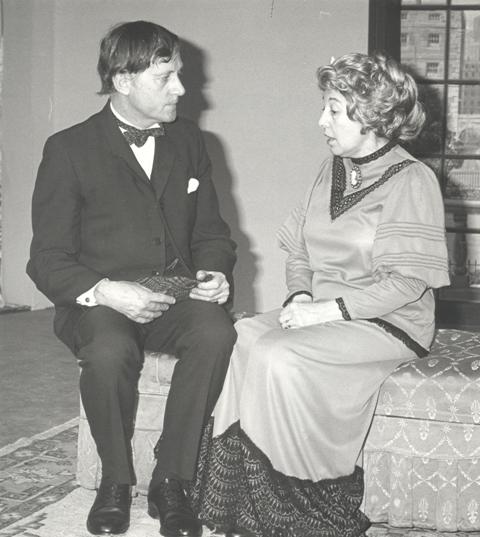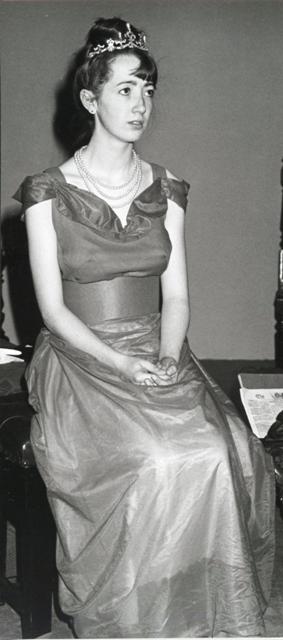Pygmalion
Written by George Bernard Shaw
Thursday 1st May to Saturday 3rd May and Thursday 8th May to Saturday 10th May 1980
Directed by Tony Adams
Based on classical myth, Bernard Shaw's Pygmalion plays on the complex business of human relationships in a social world. Phonetics Professor Henry Higgins tutors the very Cockney Eliza Doolittle, not only in the refinement of speech, but also in the refinement of her manner. When the end result produces a very ladylike Miss Doolittle, the lessons learned become much more far reaching. The successful musical 'My Fair Lady' was based on this Bernard Shaw classic.
previous
production
next
production
AuthorGeorge Bernard Shaw
George Bernard Shaw
George Bernard Shaw (1856 - 1950)
Shaw first earned a literary living as a critic. His main talent, however, was for writing scripts and he wrote more than 60 plays during his lifetime. Nearly all his works deal sternly with prevailing social problems, but have a vein of comedy to make their stark themes more palatable. Shaw examined education, marriage, religion, government, health care and class privilege.
He was most angered by what he perceived as the exploitation of the working class, and most of his writings censure that abuse. An ardent socialist, Shaw wrote many brochures and speeches for the Fabian Society. He became an accomplished orator in the furtherance of its causes, which included gaining equal rights for men and women, alleviating abuses of the working class, rescinding private ownership of productive land, and promoting healthy lifestyles.
He is the only person to have been awarded both a Nobel Prize for Literature (1925) and an Oscar (1938), for his contributions to literature and for his work on the film Pygmalion.
'Pygmalion' tells the story of Henry Higgins who makes a bet with his friend Colonel Pickering. The wager is that he can successfully pass off a Cockney speaker as a refined society lady. As a a professor of phonetics he wants to prove how easy it would be, by teaching someone how to speak with an upper class accent and training them in etiquette. Having chosen flower girl Eliza Doolittle for the guinea pig, the lessons begin. In the process of transformation, Higgins and Eliza grow close, but she ultimately rejects his domineering ways and declares she will marry the original object of her affection, a poorer, younger Cockney man.
The Pygmalion myth was a popular subject for Victorian era playwrights, including one of Shaw's influences, W. S. Gilbert, who wrote a successful play based on the story in 1871, called Pygmalion and Galatea.
Shaw wrote this play in the spring of 1912 and it opened in 1914. It was the most broadly appealing of all his plays but audiences wanting a happy ending for the characters they liked so well, would be thwarted by Shaw's insistence that Higgins and Eliza should NOT marry. Different printed versions of the play also omit or add certain lines, and in the original play, Eliza's test is met at an ambassador's garden party, offstage. For the 1938 film writers replaced that exposition with a scene at an embassy ball.
top of page
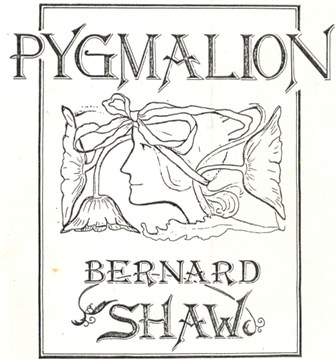
This play was staged at Havant Arts Centre, East Street Havant - Bench Theatre's home since 1977.
| Henry Higgins | Terry Cattermole |
| Colonel Pickering | Stuart Sheach |
| Alfred Doolittle | Tony Czapp |
| Freddie Eynsford Hill | Jim Charlton |
| Taximan | Brian Sweatman |
| A Bystander | Keith Woodason |
| A Sarcastic Bystander | Derek Cusdin |
| Other Bystanders | Richard Cattermole |
| Eliza Doolittle | Helen Simpson |
| Mrs Higgins | Eve Moore |
| Mrs Pearce | Ruth Prior |
| Mrs Eynsford Hill | Robbie Cattermole |
| Clara Eynsford Hill | Ellie Constad |
| A Parlour Maid | Janice Lloyd |
Crew
| Director | Tony Adams |
| Stage Manager | Fred Jeffries |
| Assistant Stage Managers | David Brown
Katie Elliott
Amanda Payne
Jon Philpot
Brian Sweatman
Mike Rolfe |
| Lighting | Anthony Elliott |
| Sound | John Skinner |
| Poster | David and Jacquie Penrose |
| Painting Specialist | John Grace |
Director's Notes
The Bench Theatre wish to thank 'Antiques and Nice Things' of North Street, Havant for the kind loan of period properties, Mrs Fiedlander for the loan of her home for rehearsals and Ken Bick of the Portsmouth Telephone Area for the loan of the telephone.
Though the story of Pygmalion is the one made familiar by film and musical, the version followed is largely Shaw's original play for the stage. The scene of the embassy's reception is, therefore, not shown.
Tony Adams
top of page
Production Photographs

